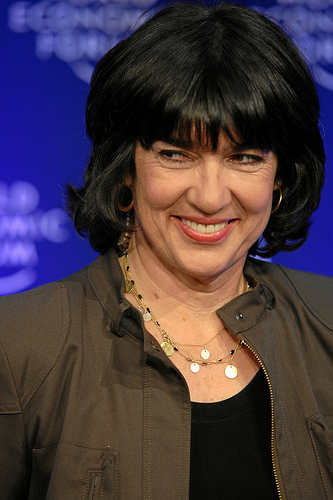What Corporate Sustainability can learn from twitter, Robert Scoble & Iran


Amanpour: A little more Davos & Friend Feed, a little less Damascus & live feed?
The celebrated celebrity blogger, Robert Scoble, is ticked off with CNN over its weak coverage of the Iran election and aftermath. In his most recent blog post -'The day Twitter kicked CNN’s behind & @ev bought me a whisky', Robert argues that twitter (yes twitter, the fire hose twitter), is handily beating out CNN and most other US media sources in the news game. In fact, he was holding court on this very topic so passionately one night recently at the Ritz that he caught the attention of Mr. Twitter himself (@ev), Evan Williams who was so chuffed with his new found status as newsman he bought whiskeys all round!
So there you have it Christiane Amanpour - pack up your fatigues, come home from the battlefield, get yourself a webcam and come meet your new boss over a cocktail or two at the Ritz for this is the new age of citizen journalism. Seriously, I love twitter but I'm sticking with Robert Fisk of the Independent for context and insight on the Middle East rather than Robert Scoble's friend feed room which is pulling up gems like this one:
Take for example, CSR blogger Marcy Scott Lynn at Sun Microsystems. Marcy this year wrote a thoughtful, honest and tough critique of the Corporate Responsibility Officer annual ranking. (I had a rant on this same subject last year but The CRO's unstable methodology is still an issue). Sun CEO Jonathan Schwartz even took the time to enter the fray on line and challenged The CRO to respond openly to issues raised. Did they bother to do so even when the CEO of a constituent of their flawed index asks them to? Nope.
Such apathy won't pervade much longer. This is a pivotal year for sustainability with a climate agreement to be molded into shape by the UN before year's end and as we clear up the wreckage of the credit crisis. The private sector is being asked to weigh in heavily on the policy debate but who exactly is calling the shots? Ordinary people are starting to realize that business holds the key to climate stability as much as policy makers and that responsible business models can mean the difference between boom or bust. Not lease, Iran has given activists the world over a crash course in on line activism even if less so in on line journalism.
There is a vulnerability to corporate power in the public sphere: corporate entities lack the civic legitimacy of citizens and they are extremely sensitive to margin shifts & adverse PR. This opens considerable advantage to web citizen activists and even journalists who are willing to engage corporations on sustainability. In the long run, this is a good thing for business and society especially if it helps spur the private sector on to meet the climate challenge and tackle business models that lead to adverse public outcomes such as that of the credit crisis.
* see my disclosure